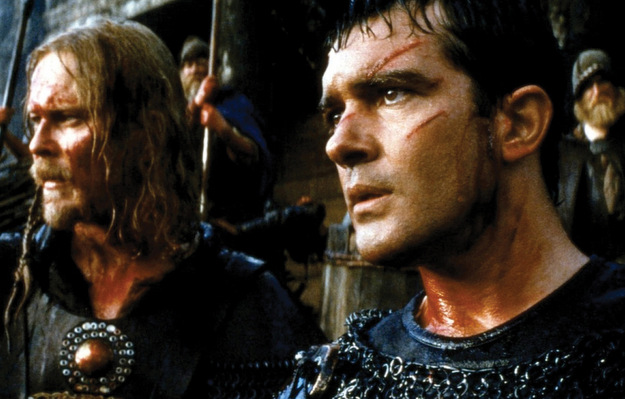As an avid comic reader, it would be difficult not to hear of Neil Gaiman’s stories. Somehow, though, with the hundreds of comics that I have (possibly thousands, but too hard to count in a box under the bed), I have yet to pick up a comic by Gaiman. After reading his latest novel American Gods, I’ll be rethinking that decision. Through the small press world I had heard of Gaiman’s other pastime, novels. Knowing of his work from the comic world, I had been looking for a book by him. As it turned out, the local bookstore had a signed, limited first edition of American Gods. It was an interesting title, he seemed to be highly respected, so I decided to give it a shot. I moved it to the top of the reading list (it’s a big list too), and off we went to prison.
| This review was originally written in 2002, for a UK magazine. It was also used for a local bookstore, to “jump start” their public book review section. |
The main character of the novel is Shadow, in jail for something he did three years ago. A model prisoner, one that has truly been rehabilitated, all he looks forward to is seeing his wife again, getting back to his old job, and continuing life. But just as he is about to be released, he finds out his wife and best friend were killed in a car accident. The first third of the book does a great job of developing the story from here, getting inside the mind and emotions of Shadow. The reader is shown that he has really tried hard to change his life, and in an instant it’s all gone again. Gaiman’s writing sneaks in the underlying strength of the character, allowing the emotions of Shadow to develop at a subtle pace.
Only later do you realize, further along in the book, that you like the character of Shadow, and that you actually liked him all along. At only the 15 page mark, the odd events which will characterize the remaining story come to light. Barely making his flight, Shadow takes his seat on the plane. As we seemingly sit with Shadow we meet Wednesday, a prolific character if there ever was one. He somehow already knows Shadow, and in fact has a job for him. Shadow accepts a job from Wednesday at a pub a bit later, but only Wednesday really knows what’s going on. Wednesday certainly hints at it, and Gaiman creates a character of depth and mystery, intriguing us, driving us to find out who and what Wednesday is. But he also writes the character as a somewhat jovial, natural leader, someone who all of the others would seemingly follow to their deaths.
It seems a war is brewing in America, one that has been building for centuries and is about to come to a head. The new regime of gods and the old are butting heads, with Shadow stuck in between. Gaiman cleverly leaves many of the breadcrumbs that we as readers are starving to follow, but only big enough to hint at what’s really going on. As we follow Shadow on a cross country journey, Gaiman slowly but surely lays out the entire story, but as he does so he leaves quite a bit of gray area for the reader to float around in. This is where Gaiman is at his best in the book, allowing the reader to pursue what they feel is the truth – only teasing the information back to us, allowing us to follow the path ourselves, keeping us just barely on the trail.
Gaiman also works his characters quite expertly, with a quiet, unexpected depth to each one. He makes these people likeable, or at least realistic if they aren’t. I knew in the story that each character had special qualities, but even in a tale oozing with the supernatural and strange events each character still had a very understandable human side. Magic becomes an everyday occurrence, so much so that Shadow is not even surprised when his dead wife comes back to visit… Gaiman’s polished writing draws us into Shadow’s dead wife’s character, Laura, as if she were living flesh and blood.
The only flaw that I really noticed in the novel was less of a fault and more of a matter of opinion, from one of his strengths to a perceived weakness. Shadow is slammed into this world of magic and the unreal from one as base as prison. Even for a man who has lost everything, and has seen magic, he still accepts events a little too easily. Later in the book this works fine, but it’s a very quick switch at the beginning, and maybe just a little snippet of nervousness would have lured us in a bit easier.
After reading American Gods, I’ll be on the lookout for other Gaiman works. I’ll look into some of his other comics, as well as his novels. American Gods is overall one of the most consistent books I’ve ever read, which is no small feat. Many authors have a strong opening or closing, but Gaiman has demonstrated an ability to consistently tell the story, something which many other books lack. As for me, I’ll be hitting the local bookstores tomorrow for more from Gaiman. You should too.


